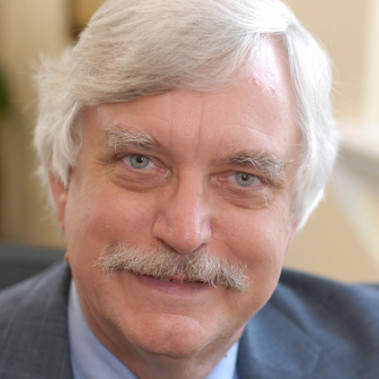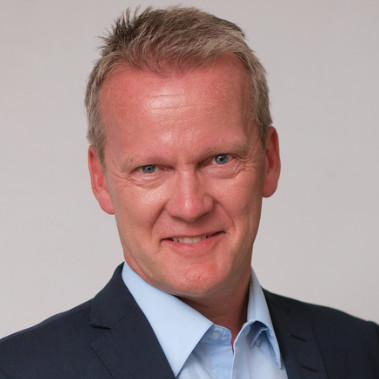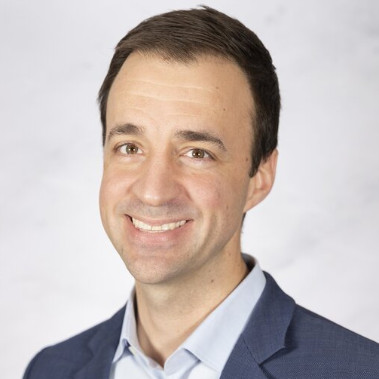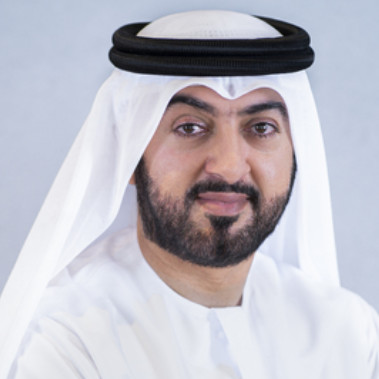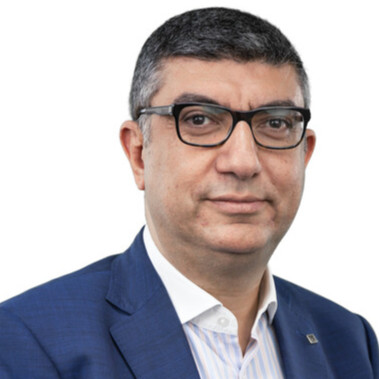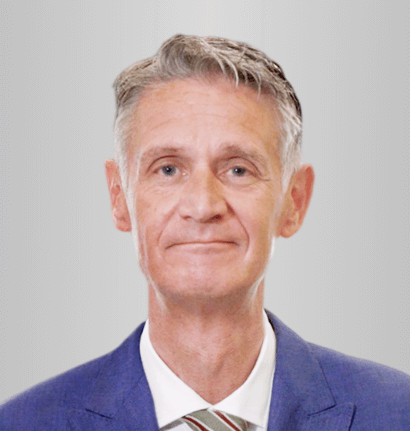Media Centre Media Centre
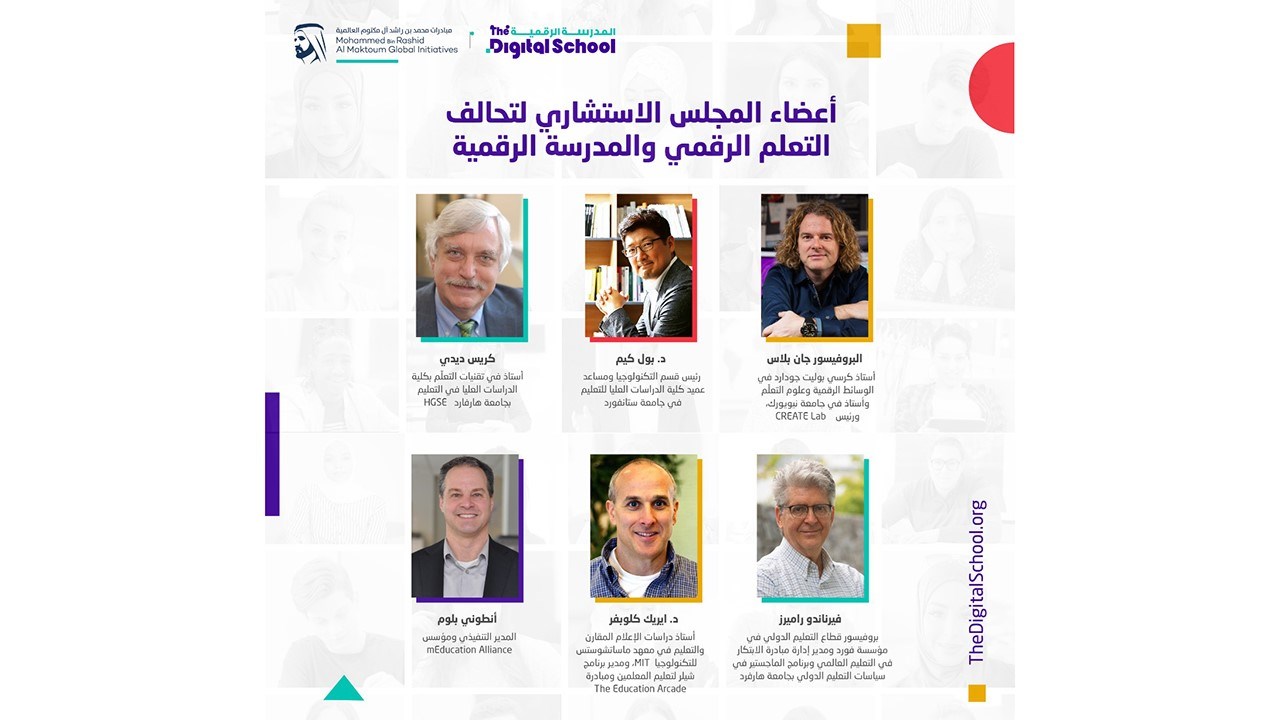
‘Alliance for the Future of Digital Learning’ launched to advance global digital education systems
إطلاق "تحالف مستقبل التعلم الرقمي" الداعم لتأسيس مبادرة المدرسة الرقمية
As part of The Digital School, the first-of-its-kind ‘Alliance for the Future of Digital Learning’ was launched to unify efforts to advance the future of digital education systems in the region and the world.
Bringing together education experts and specialists from global leading universities, the Alliance will support and develop the Digital School’s implementation across different stages to facilitate education to students across the world, particularly students living in refugee camps and marginalized communities.
As part of a wider scope, the Alliance will work on implementing modern digital learning practices and setting future digital education frameworks in the region. It will launch innovative and pioneering initiatives and projects to introduce new digital education practices that equips students with the 21st century skills necessary in the modern workplace. As part of its wider vision, the Alliance will bridge the modern skills gap, ensuring equal opportunities to education to students across the world, regardless of their circumstances.
Through developing pilot projects, the Alliance will also establish an education system based on practical applications and developing pilot projects that cater to different needs in the region and the world.
Members of the Alliance’s advisory council include education and tech experts from global leading universities like Stanford University, Harvard University, New York University and Massachusetts Institute of Technology (MIT), as well as representatives from non-profit organizations like mEducation Alliance.
The advisors will contribute to establishing the foundation, content, vision, goals and strategies of the Digital School.
The Digital School was developed after extensive research and review of leading global learning experiences on how to implement a comprehensive advanced digital learning ecosystem and drive new educational technologies.
Advisory Council members
The alliance’s advisory council include Dr. Paul Kim, Chief Technology Officer and Associate Dean of the Graduate School of Education at Stanford University; Chris Dede, the Timothy E. Wirth Professor in Learning Technologies at Harvard’s Graduate School of Education (HGSE); Dr. Eric Klopfer, Professor and Director of the Scheller Teacher Education Program and The Education Arcade at MIT; Dr. Jan L. Plass, Paulette Goddard Professor of Digital Media and Learning Sciences at New York University, and Founding Director of the CREATE Consortium for Research and Evaluation of Advanced Technology in Education (NYU); and Anthony Bloome, Executive Director and Founder of mEducation Alliance.
The Alliance is supported by local humanitarian organizations like Dubai Cares and the Emirates Red Crescent, as well as experts from tech and telecommunications companies.
Global Contribution
Of cultivating partnershipswith Ministries of Education and digital platform and content providers, Advisory Council memberAnthony Bloome, Executive Director and Founder of mEducation Alliance, said “the Alliance’s impact can be enormous in delivering first-class educational experiences to those learners with the greatest needs — and facing an increasingly competitive educational landscape and economic marketplace.”
“We are excited to work alongside the staff and other advisors of these critically important initiatives to support the delivery of high-quality educational instruction and content to learners around the world, but particularly those who have been marginalized in lower-resource context.”
Chris Dede, the Timothy E. Wirth Professor in Learning Technologies at HGSE, noted that digital education will help bridge the gap between the current educational system and the modern labor force, especially as COVID-19 pandemic highlighted the rising challenges in the learning ecosystem.
“Typical classrooms at every level are now dominated by one-size-fits-all presentational instruction appropriate for an industrial society, but not the emerging global digital economy. In the shadow of the pandemic, the Alliance is seizing the opportunity to develop and scale learning environments based on advanced technologies and modern knowledge about the mind and brain.”
He added that in an ever-changing world, “Students need strengths in resilience, perseverance, self-regulation, collaboration, conflict resolution, and forging opportunity from turbulence and uncertainty.” The Alliance, he said, is designing an educational model that will develop knowledge, skills, and dispositions to face the next half century.
Of the Digital School impact, Dr. Paul Kim, Chief Technology Officer and Associate Dean of the Graduate School of Education at Stanford University, said“The Digital School is a visionary and ambitious project in the field of education that will bring real change to lives across the region and indeed the world. It is fitting that this project is coming out of Dubai”
Dr. Jan L. Plass, Paulette Goddard Professor of Digital Media and Learning Sciences at New York University, said, “I am incredibly excited to be part of this initiative to help bring equity to education, especially for refugee children, by advancing the use of digital media to provide personalized learning opportunities for all.
Dr. Eric Klopfer, Professor and Director of the Scheller Teacher Education Program and The Education Arcade at MIT said, “Alliance for the Future of Digital Learning and the Digital School provide a unique opportunity to impact learners today, as well as advance our understanding of how we can better people young people for the complexities of the 21st century. This initiative provides a hub for innovation that can benefit today’s learners through the application of the learning sciences. At the same time, it provides a foundation for new research-backed innovations that can create a brighter future for all learners. This is a truly exciting confluence of experts, opportunities, and impact.”
The Digital School
Powered by advanced learning technologies, the Digital School was launched to offer a flexible and personalized approach to knowledge and skill development. It will provide equal access to high quality education to students all over the world, particularly targeting refugees and disadvantaged students in the Arab world.
Through its pioneering technologies, the School will lay the foundations and standards for digital education in the region and the world. It will offer an agile and accredited curriculum to students at various educational levels, nurturing skills beyond academic competency to self-learning skills, Social and Emotional Learning (SEL) and innovation.
ضمن مساهمات دولة الإمارات في الجهود العالمية لصياغة مستقبل التعلّم بالاستفادة من التكنولوجيا المتقدمة. إطلاق “تحالف مستقبل التعلم الرقمي” الداعم لتأسيس مبادرة المدرسة الرقمية. خبراء من جامعات ستانفورد وهارفرد ومعهد ماساتشوستس للتكنولوجيا وجامعة نيويورك ضمن المجلس الاستشاري لتحالف مستقبل التعلم الرقمي.
يعمل “تحالف مستقبل التعلم الرقمي”؛ الأول من نوعه على توحيد جهود تطوير مستقبل أنظمة التعليم الرقمي على مستوى المنطقة والعالم، وتوفير فرص تعليمية مستقبلية متساوية للطلبة، وخاصة الطلاب اللاجئين في المخيمات والمحرومين في المجتمعات الهشة والمهمشة، وذلك بالاستفادة من تطبيقات التكنولوجيا المتقدمة والحلول الرقمية.
ويجمع التحالف خبراء التعليم واختصاصيي التربية من جامعات ومؤسسات أكاديمية عالمية مرموقة، كما يدعم مبادرة المدرسة الرقمية، أحد مشاريع مؤسسة مبادرات محمد بن راشد آل مكتوم العالمية وأول مدرسة رقمية عربية متكاملة ومعتمدة توفر التعليم عن بُعد بطريقة ذكية ومرنة للطلاب من شتى الخلفيات الاجتماعية والاقتصادية والمستويات التعليمية ومن أي بلد في العالم. كما يتكامل التحالف مع جهود المدرسة الرقمية لتسهيل توفير التعليم بمختلف مراحله للطلبة حول العالم، مع التركيز على الفئات المحتاجة من الطلبة، كاللاجئين أو أولئك المتواجدين في المناطق والمجتمعات الأقل حظاً.
وسيعمل تحالف مستقبل التعلّم الرقمي على تفعيل تطبيق وسائل التعلّم الحديثة ودعم أطر التعلم الرقمي للمستقبل في المنطقة، كما سيطلق مبادرات ريادية مبتكرة ومشاريع نوعية لتمكين الطلبة لمواصلة تحصيلهم العلمي والمعرفي، من خلال توظيف أحدث ممارسات التعلم الرقمي والمهارات الحيوية المطلوبة في سوق العمل حاضراً ومستقبلاً. كما تشتمل رؤية التحالف على دعم سد فجوة المهارات، بما يوفر فرصاً تعليمية متساوية للطلبة حول العالم، بغضّ النظر عن ظروفهم الاقتصادية والاجتماعية.
ويضع تحالف مستقبل التعلّم الرقمي عبر مشاريعه الأولى أسس منظومة تعليمية مرنة قائمة على التطبيق العملي والمشاريع الاختبارية التي تلبي الاحتياجات التعليمية المتباينة في المنطقة والعالم.
ويحظى “تحالف مستقبل التعلم الرقمي” بدعم من دبي العطاء؛ إحدى مبادرات محمد بن راشد آل مكتوم العالمية، والهلال الأحمر الإماراتي، وخبراء من شركات الاتصالات والتكنولوجيا. ويجمع المجلس الاستشاري للتحالف العالمي لمستقبل التعلّم الرقمي في عضويته خبراء تربويين وتقنيين من جامعات عالمية مرموقة مثل جامعة ستانفورد، وجامعة هارفرد، وجامعة نيويورك، ومعهد ماساتشوستس للتكنولوجيا، إلى جانب ممثلين من منظمات غير ربحية مثل تحالف “أم أديوكيشن” التعليمي.
ويساهم خبراء التحالف في وضع الأسس والركائز لمشروع المدرسة الرقمية، ومحتواها التعليمي، ورؤيتها، وأهدافها، واستراتيجياتها المتوافقة مع رسالتها في تمكين الطلبة بالتعليم الرقمي حيثما وُجِدوا. وتشكل المدرسة الرقمية نتاج أبحاث تخصصية مكثفة وحصيلة دراسة تجارب تعليمية عالمية لتطبيق منظومة حيوية متكاملة للتعليم الرقمي المتقدم باستخدام تقنيات تعليمية جديدة.
ويضم المجلس الاستشاري للتحالف في عضويته كلّاً من الدكتور بول كيم، رئيس قسم التكنولوجيا ومساعد عميد كلية الدراسات العليا للتعليم في جامعة ستانفورد، والدكتور كريس ديدي، أستاذ تقنيات التعلّم بكلية الدراسات العليا في التعليم بجامعة هارفارد HGSE، والدكتور إيريك كلوبفر، أستاذ دراسات الإعلام المقارن والتعليم في معهد ماساتشوستس للتكنولوجياMIT، ومدير برنامج شيلر لتعليم المعلمين ومبادرة The Education Arcadeوالدكتور جان بلاس، أستاذ كرسي بوليت جودارد في الوسائط الرقمية وعلوم التعلّم وأستاذ في جامعة نيويورك، ورئيس CREATE Labوأنطوني بلوم، المؤسس والمدير التنفيذي لتحالف “أم إديوكيشن” التعليمي.
وحول التعاون وعقد الشراكات مع وزارات التعليم والمنصات الرقمية ومزودي المحتوى، قال أنطوني بلوم، المؤسس والمدير التنفيذي لتحالف “أم إديوكيشن” التعليمي: يمكن للتحالف العالمي لمستقبل التعلّم الرقمي أن يُحدث تأثيراً كبيراً على توفير فرص تعليمية نوعية للمتعلمين الأكثر حاجة لمنحهم قدرات تنافسية في التعلم وسوق العمل.
وأضاف: نحن متحمسون للتعاون مع فريق العمل وطاقم مستشاري التحالف لإنجاز مبادرات بالغة الأهمية لدعم توفير التعليم المتقدم والمحتوى العصري للمتعلمين حول العالم، وخاصة أولئك من ذوي الموارد المحدودة.
بدوره لفت كريس ديدي، أستاذ تقنيات التعلّم بكلية الدراسات العليا في التعليم بجامعة هارفارد HGSE، إلى أن التعليم الرقمي سيساهم في سد الفجوة بين النظم التعليمية الحالية والمتطلبات الحديثة لأسواق العمل، خاصة مع التحديات الجديدة الناشئة عن تداعيات جائحة كوفيد-19 وتداعياتها على منظومة التعلّم بأكملها.
وقال ديدي ان الفصول الدراسية التقليدية في كافة المراحل التعليمية كانت تقدم منتجاً واحداً على اعتبار أنه يناسب الجميع وهي طريقة كانت مقبولة في مراحل ما بعد الثورة الصناعية، لكنها لا تتناسب بالضرورة اليوم مع الاقتصاد الرقمي العالمي الصاعد. وفي ظل الجائحة الصحية العالمية، يعمل التحالف على الاستفادة من الفرص الراهنة وتطوير بيئات تعلّم مرنة وتوسيع نطاقها بالاستفادة من التقنيات المتقدمة والمعارف الحديثة التي تخاطب القدرات العقلية المتنوعة.
وأضاف انه في عالم دائم التغيّر، يحتاج الطلاب إلى تطوير مهارات المرونة، والمثابرة، وتنظيم الوقت، والتعاون، وترتيب الأولويات، واقتناص الفرص من التحديات. وفي هذا السياق، يصمم التحالف نموذجاً تعليمياً يطوّر المعارف والمهارات والخصال المطلوبة للنصف الثاني من القرن الحالي.
وحول أهمية مشروع المدرسة الرقمية قال الدكتور بول كيم، رئيس قسم التكنولوجيا ومساعد عميد كلية الدراسات العليا للتعليم في جامعة ستانفورد: تشكل المدرسة الرقمية مشروعاً مستقبلياً طموحاً ينطلق عن جدارة واستحقاق من دبي برؤية استراتيجية في مجال التعليم لإحداث تغييرات إيجابية فعلية في حياة الكثيرين في المنطقة والعالم.
من جهته قال الدكتور جان بلاس، أستاذ كرسي بوليت جودارد في الوسائط الرقمية وعلوم التعلّم وأستاذ في جامعة نيويورك: يسعدني أن أكون ضمن هذه المبادرة التي تساعد في تعزيز قيمة التعليم وتوفيره على بشكل خاص لأطفال اللاجئين، بتعزيز استخدام الوسائط الرقمية التي توفر فرص تعلّم تراعي الاحتياجات الشخصية للجميع.
إلى ذلك، قال الدكتور أريك كلوبفر، أستاذ دراسات الإعلام المقارن والتعليم في معهد ماساتشوستس للتكنولوجيا MIT ومدير برنامج شيلر لتعليم المعلمين ومبادرة The Education Arcade ان التحالف العالمي لمستقبل التعلّم الرقمي ومبادرة المدرسة الرقمية يوفران معاً فرصاً فريدة للتأثير إيجابياً في حاضر التعليم وتطوير فهمنا لكيفية إعداد شباب المستقبل لتحديات القرن الحادي والعشرين. وهذا ما يوفر بدوره محطةً للابتكار وتطبيق العلوم والمعارف البشرية في مجال التعلّم لفائدة الطلبة، كما يضع أساساً لإبداعات جديدة قائمة على الأبحاث لتوفير مستقبل أفضل لكل طلاب العلم والمعرفة. هذه بالفعل مبادرة جامعة تضم الخبراء والفرص وتحقق التأثيرات الإيجابية.
ويأتي إطلاق المدرسة الرقمية لتوفير منهجية تعليمية مرنة تراعي الاحتياجات الشخصية لكل متعلم في تطوير المعارف والمهارات، بالاستفادة من التقنيات الرقمية المتقدمة. وتوفر المدرسة فرصة متكافئة للطلبة للحصول على تعليم عالي الجودة في مختلف أنحاء العالم، وخاصة الطلبة في مخيمات اللجوء وأولئك الذين لا تسمح لهم ظروفهم الاجتماعية والاقتصادية بالحصول على تعليم نوعي في المجتمعات الأقل حظاً في العالم العربي.
وتعمل المدرسة الرقمية على ترسيخ أسس ومعايير التعليم الرقمي في المنطقة والعالم. وتوفر منهجاً دراسياً معتمداً ومرناً للطلاب في مختلف المراحل التعليمية، كما تعمل على تطوير المهارات التي تعزز القدرات الأكاديمية، مثل مهارات التعلم الذاتي، والمهارات الاجتماعية والذكاء العاطفي، ومهارات الابتكار.



